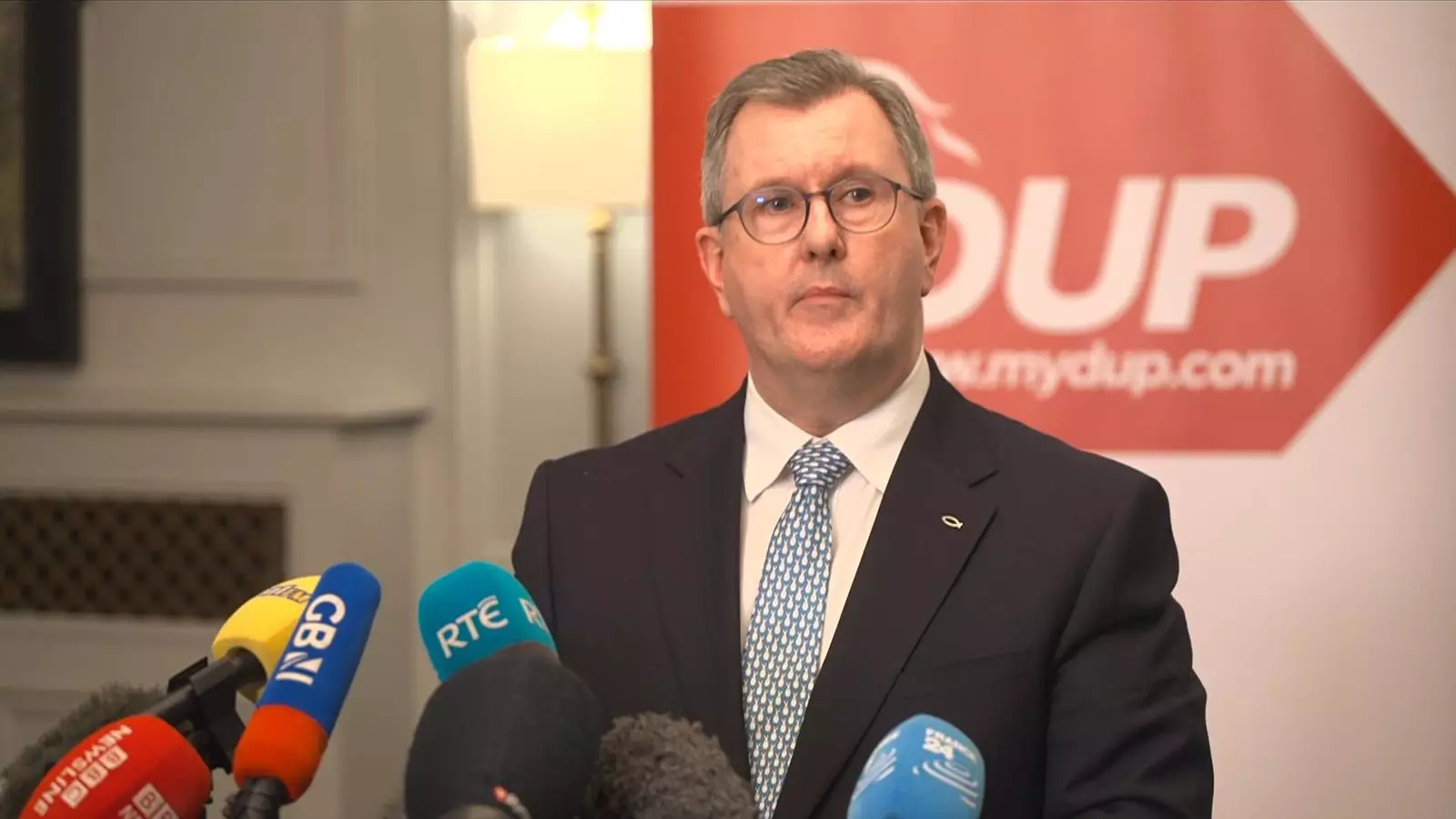The Democratic Unionist Party (DUP) has reached an agreement to restore power-sharing in Northern Ireland, contingent upon the UK government enacting the necessary legislation. The power-sharing government had collapsed nearly two years ago in protest against the post-Brexit trade arrangements that created trade barriers between Great Britain and Northern Ireland. This article will examine the details of the deal and its potential implications for Northern Ireland.
The DUP leader, Sir Jeffrey Donaldson, has announced that his party will restore power-sharing in Northern Ireland, provided that the UK government fulfills its commitment to introduce new legislative measures. The package of measures, once implemented, will serve as the foundation for the return of devolved government in the region. Sir Jeffrey asserts that this deal will safeguard Northern Ireland’s position within the UK and, critically for the DUP, remove checks on goods moving within the UK and remaining in Northern Ireland.
As positive as this development may appear, the DUP cautions that their endorsement of the agreement hinges upon the UK government’s delivery of the proposed measures. Sir Jeffrey emphasizes that his party’s approval is contingent upon the government following through on implementing the provisions outlined in the negotiations. Only then will the DUP move forward with the restoration of power-sharing.
Although the specific details of the deal have not been disclosed, Sir Jeffrey expresses confidence in the progress achieved thus far. He describes the vote on the agreement as “decisive” and suggests that the government can act swiftly to enact the necessary legislation. This optimism is echoed by Sinn Fein leader Mary Lou McDonald, who is hopeful about this development and vows to engage with all relevant parties and governments to ensure efficient progress.
Northern Ireland Secretary Chris Heaton Harris welcomes this crucial step toward restoring power-sharing and emphasizes the government’s commitment to fulfilling its end of the agreement. Political stability is paramount in addressing the various crises plaguing public services in Northern Ireland. The urgency to support workers and families in need necessitates a functioning government, making the restoration of power-sharing imperative.
Northern Ireland has a unique governance model that differs from the rest of the UK, developed in response to decades of conflict within the country. This power-sharing model was devised as part of the Good Friday Agreement. Unlike an agreed coalition, where multiple parties come together to form a government, Northern Ireland mandates power-sharing between nationalist and unionist parties. This ensures equal representation from both sides – those advocating for Irish unity and those desiring Northern Ireland’s continuation as part of the UK.
The Northern Ireland Executive consists of the first and deputy first ministers and their cabinet. To maintain the delicate balance, one must be unionist and the other nationalist, with equal powers. Neither can hold office without the other. Following the rise of Sinn Fein as the largest party, they will choose the first minister, while the DUP will select the deputy first minister. Decisions requiring cross-community support, such as the election of the speaker and deputy speakers, as well as budget allocations, must be reached through consensus.
The agreement reached by the DUP to restore power-sharing in Northern Ireland marks a significant step towards political stability in the region. While hurdles remain, and the implementation of specific measures is yet to be revealed, this development offers a glimmer of hope for the people of Northern Ireland. The restoration of power-sharing has the potential to address the pressing issues faced by public services and provide a much-needed functioning government. As the process unfolds, it is crucial for all parties involved to remain committed to the agreed-upon measures and work towards a prosperous future for Northern Ireland.


Leave a Reply